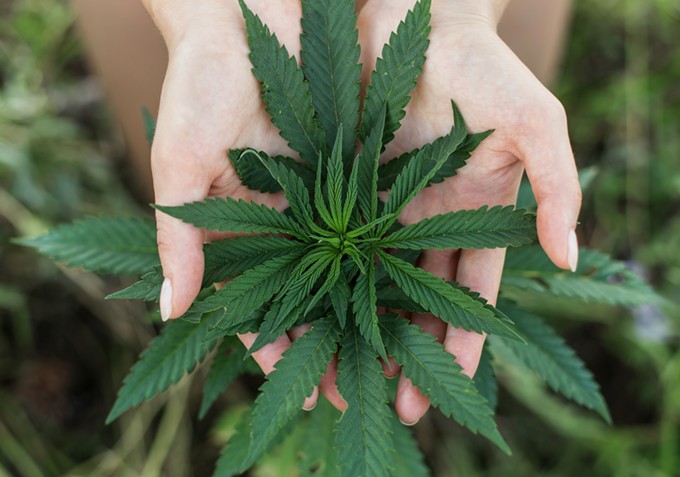Cannabis advocates are used to the common refrain from opponents: Cannabis is more dangerous today because it’s so much stronger than what hippies were smoking in the ’60s.
It’s one of the weaker arguments in the arsenal of ways detractors attempt to disparage the plant that hasn’t caused the collapse of society they’d predicted.
However, even in the face of an accelerating industry, social acceptance and legality, some people still cling to the old debunked perspectives. One of those people is Arizona House Speaker Rusty Bowers, who has introduced House Concurrent Resolution 2045 to ask voters, via a 2020 ballot proposition, to limit the amount of THC in cannabis strains to 2 percent.
Anyone familiar with the strains dispensaries sell knows that’s the amount of THC in CBD strains. Typical balanced strains have somewhere between 4 to 8 percent THC while THC-heavy strains usually have anywhere between 10 and 30 percent THC.
But that hardly means anything when we have concentrates that contain nearly 100 percent THC. The fact that someone can smoke 100 percent THC alone decimates any reasoning Bowers might have used to concoct this resolution.
If people can smoke 100 percent THC what’s so scary about 10 or even 30 percent?
There’s no argument cannabis is stronger today than it was when your parents smoked it. In fact, following legalization, cultivators very intentionally determined ways to make cannabis stronger.
When people smoke cannabis, they aren’t trying to consume as much plant matter as possible while just happening to also inhale THC. The THC is one of the main active components of cannabis.
More THC in a strain doesn’t necessarily translate to getting higher and could just mean less smoking. In the case of concentrates, that could simply be the difference between a couple bowls and a single hit.
What’s so controversial about that?
Certainly, some patients do want to consume as much THC as humanly possible. But here’s the thing about smoking as much cannabis as possible: if you’re an adult, nothing really happens.
In the immortal words of comedian Kitt Williams, the side effects of cannabis are „hungry, happy, sleepy.”
Aside from the asinine argument that high-THC cannabis turns patients into zombies, the resolution would have a devastating effect on the business as well.
Not only would concentrates likely become too costly to produce, but the price of flower would plummet, and people would have to buy a whole lot more of it.
In an ideal case, dispensaries would have to grow 10 times as much cannabis, patients would have to buy 10 times more or the market would decrease to a 10th of the size it is now.
If Speaker Bowers doesn’t see how his proposed law would interfere with the free markets his party supposedly supports so much, then he could learn a thing or two from an Intro to Microeconomics course at Maricopa Community College.
When you look at the source of Bowers’ cause, it makes sense he’d be a little confused.
Bowers reportedly told the committee he developed the law after reading former New York Times journalist Alex Berenson’s book Tell Your Children: The Truth About Marijuana, Mental Illness and Violence.
We’ve talked about this book plenty after it was published last year. Berenson essentially took a smattering of studies identifying a correlation between cannabis use and schizophrenia to boldly (and incorrectly) claim cannabis causes schizophrenia.
Again, a basic understanding of statistics could remind Berenson correlation does not imply causation. Knowledge of the scientific community and the myriad biases that determine study conclusions and publication only increases the lack of reliability of Berenson’s claims.
His book has received plenty of criticism from the scientific and academic community, including from authors of the very studies he cites.
Needless to say, Berenson’s book is bologna convincing only to the least-critical thinkers.
The bill has already passed out of committee, which is no surprise given its introduction by the Speaker. But hopefully some basic cognitive reasoning takes over on the floor and this lousy attempt at a law gets squelched before it sees more light than it deserves. ■
The Tucson Weekly Sixth
Annual Cannabis Bowl!
With 4/20 on the horizon, it’s once again time to crown new winners in the Weekly’s sixth annual Cannabis Bowl! What’s your favorite brownie? Your favorite vape pen? Your favorite wax? Here’s your chance to sound off and support your preferred brand.
This year, we’re doing things a little differently: We have nominees in each category, determined by the Tucson Weekly Test Department team. When we publish the results in our super-sized 4/20 issue, we’ll reveal the winner in each category, as well as the first two runners-up.
Deadline to cast a ballot is midnight on Tuesday, March 24.
Remember, you can only vote once—and we can catch multiple votes from the same IP address, so don’t bother trying. Stuff bowls, not ballots!
